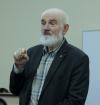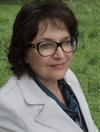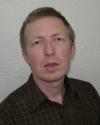References
- Continuing education concept (approved by the USSR State Committee for National Education on 18 March 1989). Byulleten' Gosudarstvennogo komiteta SSSR ponarodnomu obrazovaniyu. 1989. № 7. P. 9–20. (In Russ.)
- Vershlovskij S. G. Continuing education: historical and theoretical analysis of the phenomenon. Saint-Petersburg, 2008. 151 p. (In Russ.)
- GorshkovaV. V. Continuing education as a way of being. SPb, 2016. 288 p. (In Russ.)
- Deryabo S. D., Yasvin V. A. Environmental pedagogy and psychology. Rostov na Dony, 1996. 476 p. (In Russ.)
- Dzyatkovskaya E. N., Dlimbetova G. K., Zahlebnyj A. N. Key issues in preparing environmental education concepts. Cennosti i smysly. 2020. № 4. P. 141–155. (In Russ.)
- Dzyatkovskaya E. N., Zahlebnyj A. N. A culturological approach to general environmental education. Pedagogika. 2009. № 9. P. 35–43. (In Russ.)
- Dzyatkovskaya E. N., Zahlebnyj A. N. Mission of Environmental Education – 2030. Pedagogika. 2020. T. 84. № 6. P. 68–76. (In Russ.)
- Dzyatkovskaya E. N., Zahlebnyj A. N. Development of the theory of environmental education content in the Russian Academy of Education. Obrazovanie i obshchestvo. 2018. № 3–4. P. 36–41. (In Russ.)
- Ermakov D. S. Education for Sustainable Development. Pedagogika. 2006. № 9. P. 23–29. (In Russ.)
- Ermakov D. S. Environmental competence and competence. Pedagogika. 2015. № 7. P. 41–50. (In Russ.)
- Ermakov D. S., Suravegina I. T. Environmental education: from environmental studies to solving environmental problems. Novomoskovsk, 2005. 142 p. (In Russ.)
- Zajceva O. V. Continuing education: basic concepts and definitions. Vestnik Tomskogo gosudarstvennogo pedagogicheskogo universiteta. 2009. № 7. P. 106–109. (In Russ.)
- Zahlebnyj A. N., Dzyatkovskaya E. N., Vagner I. V., Liberov A. YU., Alekseev S. V., Ermakov D. S., Mamedov N. M., Panov V. I. General environmental education concept for sustainable development (2010). Ekologicheskoe obrazovanie: do shkoly, v shkole, vneshkoly. 2012. № 2. P. 4–15. (In Russ.)
- Zverev I. D. Ecology in school education: A new aspect of education Moscow, 1980. 96 p. (In Russ.)
- Zverev I. D., Suravegina I. T., Zahlebnyj A. N., Simonova-Saleeva L. P., Kucher T. V. General secondary environmental education concept. Moscow, 1994. 32 p. (In Russ.)
- Intergovernmental Conference on Environmental Education. Parizh, 1978. 117 p.
(In Russ.) - Nazarova E. V. Environmental education at the Russian National School of the second half of the 19th and early 20th centuries : dissertation for the degree candidate in pedagogical Sciences. Moscow, 1999. 272 p. (In Russ.)
- Continuing education is a stimulus for human development and a factor of social and economic inequality. Moscow, 2014. 433 p. (In Russ.)
- Continuing education in the context of the future: new literacy. Moscow, 2020. 306 p.
(In Russ.) - Continuous environmental education in the USSR. Moscow, 1985. 26 p. (In Russ.)
- On the concept of environmental education in a Soviet secondary school (for discussion at the Scientific Council of the Scientific Research Institute of Simo APS USSR). Moscow, 1985. 20 p. (In Russ.)
- Experience of environmental education in Khanty-Mansi Autonomous Okrug (KMAO). Vestnik ekologicheskogo obrazovaniya v Rossii. 2012. T. 3. № 65. P. 28–29. (In Russ.)
- Popova L. V. Establishing and developing a higher professional environmental education in the natural sciences: dissertation for the degree of doctor of pedagogical Sciences. SPb., 2014. 399 p.
- Environmental education / K. P. Mitryushkin, L. K. Shaposhnikov, O. G. Korovkina et al. Moscow, 1980. 175 p. (In Russ.)
- Rodova L. A. Schoolchildren's work on nature conservation, its educational and educational importance : avtoreferat dissertation for the degree of candidate in pedagogical Sciences. Alma-Ata, 1968. 18 p. (In Russ.)
- Rybal'skij N. G., Samotyosov E. D., Kolesova E. V., Popova L. V., Stepanov S. A., Hrisanov V. R. Environmental education in the Russian Federation – a 25-year journey: history, state and prospects. Ispol'zovanie i ohrana prirodnyh resursov v Rossii. 2016. № 4. P. 91–98; 2017. № 1. P. 75–82. (In Russ.)
- Strategy for Environmental Education in the Russian Federation (project). Moscow, 2001. 54 p. (In Russ.)
- Chernikova Yu. A. Continuing education as a socio-cultural phenomenon: dis. … candidate of Philos. Sciences. Volgograd, 2012. 137 p. (In Russ.)
- Shilina I. B. Creation and development of environmental education in the context of environmental policy of the Russian Federation in 1992–2003: dissertation for the degree of doctor |
of historical Sciences. Moscow, 2008. 375 p. (In Russ.) - Learning to be: the world of education today and tomorrow / E. Faure, F. Herrera,
A.-R. Kaddoura et al. Paris; London, 1972. 313 p. - Alekseev S. V. Education and enlightenment: two sides of a single process (using the example of environmental culture formation). [Electronic resource]. Nepreryvnoe obrazovanie: XXI vek. 2018. № 2. Elektron. dan. DOI: 10.15393/j5.art.2018.3944 (date of access: 10.11.2020).
(In Russ.) - Babakova T. A. Ecologisation of the regional component of school education as a means of implementing the complementarity principle [Electronic resource]. Nepreryvnoe obrazovanie: XXI vek. 2015. № 3. Electron. dan. DOI: 10.15393/j5.art.2015.2924 (date of access: 10.11.2020). (In Russ.)
- Babakova T. A. Environmental and regional approach to the implementation of education for sustainable development in general education schools [Electronic resource]. Nepreryvnoe obrazovanie: XXI vek. 2018. № 2. Electron. dan. DOI: 10.15393/j5.art.2018.3966 (date of access: 10.11.2020). (In Russ.)
- Vinokurova N. F., Demidova N. N. Continuing geoecological education: a regional concept [Electronic resource]. Nepreryvnoe obrazovanie: XXI vek. 2018. № 2. Electron. dan. DOI: 10.15393/j5.art.2018.3965 (date of access: 10.11.2020). (In Russ.)
- Dzyatkovskaya E. N. Culturological foundations for the continuity of environmental culture. [Electronic resource]. Nepreryvnoe obrazovanie: XXI vek. 2020. № 2. Electron. dan. DOI: 10.15393/j5.art.2020.5685 (date of access: 10.11.2020). (In Russ.)
- Dzyatkovskaya E. N., Pustovalova V. V. Didactic assurance of continuity of the environmental component of academic subjects [Electronic resource]. Nepreryvnoe obrazovanie: XXI vek. 2019. № 2. Electron. dan. DOI: 10.15393/j5.art.2019.4664 (date of access: 10.11.2020).
(In Russ.) - Federal state educational standards [Electronic resource]. Electron. dan. URL: https://fgos.ru. (date of access: 10.11.2020) (In Russ.)














